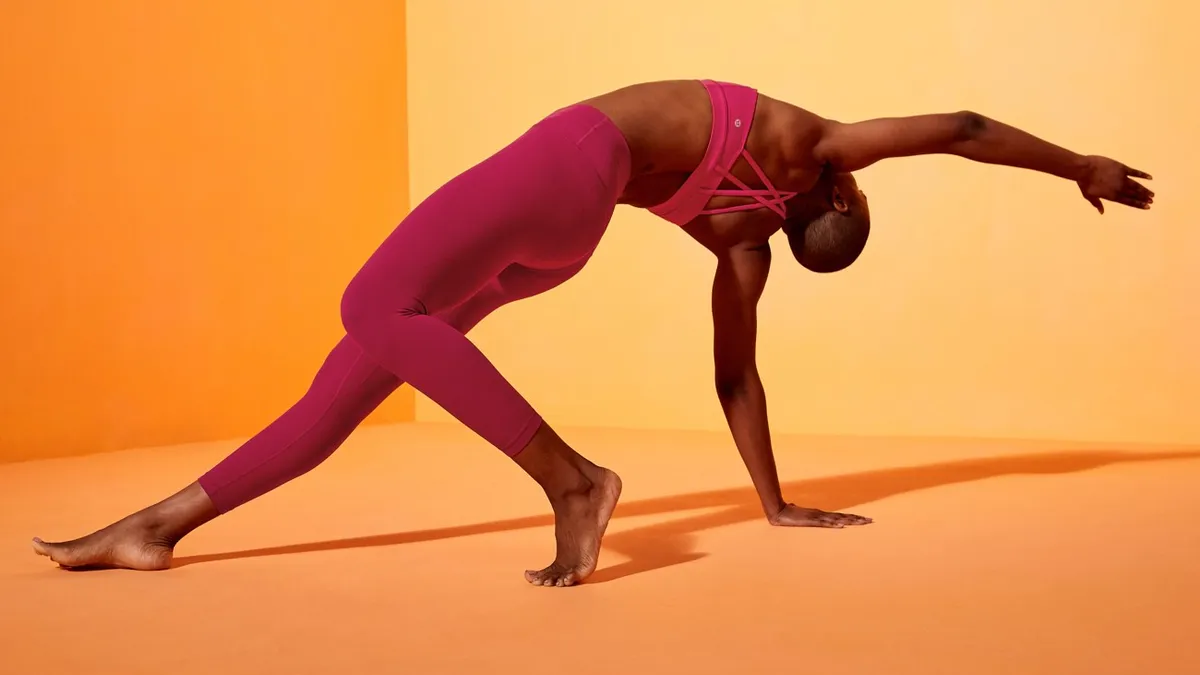Dive Brief:
-
Lululemon said Thursday that revenue was up 22% in the second quarter to $883.4 million, while total comparable sales increased 15%, according to a company press release. Comparable store sales rose 10% and direct-to-consumer net revenue increased 30%.
-
Gross profit at the retailer was $485.8 million, up 23% compared to the year-ago period, while gross margin rose 20 basis points to 55%. Operating income was $168 million, up 25% over last year, and operating margin increased by 50 basis points, to 19%.
-
On the heels of the positive earnings, Lululemon raised its guidance for the fiscal year. The retailer now expects net revenue between $3.8 billion and $3.84 billion, up from its previous forecast of $3.73 to $3.77 billion. For the third quarter, the retailer expects net revenue between $880 million and $890 million, with comparable sales to be up in the low teens.
Dive Insight:
Two quarters into its five-year plan, things so far are going well for Lululemon. Women's same-store sales were up 13% in the quarter, but men's was the real highlight, outperforming women's with 27% comps growth.
E-commerce contributed nearly 25% of total revenue, executives said on a conference call with analysts, but the retailer also opened 5 new stores in the quarter, with plans for 22 new store openings in Q3. The new stores include two "key store openings" in November — a relocation of the retailer's 5th Avenue New York store and its second experiential store in Minneapolis, inside the Mall of America.
"This location will offer several of the features found in Lincoln Park and we're excited about what this store can teach us as a high-volume mall-based location," Executive Vice President of the Americas and Global Guest Innovation Celeste Burgoyne said.
According to CEO Calvin McDonald, physical locations have posted healthy conversion and traffic numbers — something that not many retailers can claim.
"First is the athletics space in general is very healthy, relative to other sectors in both apparel and retail in general," McDonald said about the retailer's brick-and-mortar growth. "Second, our business has fewer highs and lows relative to other apparel brands and we're less dependent on seasonal fluctuations and we have a very healthy core business that is driving our success."
He also pointed to compelling product and brand activations, as well as improvements in data analytics and digital marketing.
Aside from its usual product offerings, McDonald mentioned that customer reactions to the retailer's new self-care line have also been strong, and the line has "exceeded our expectations."
"Look for several new additions to the line between now and the end of the fiscal year," he said.
The retailer's other test — a membership program costing over $100 — was just launched in its fourth test market, Chicago, in addition to Denver, Austin, Texas, and Edmonton, Alberta. Executives said the program has reached more men and new customers than expected, and will expand further in 2020 and 2021.














